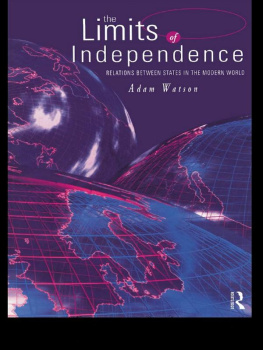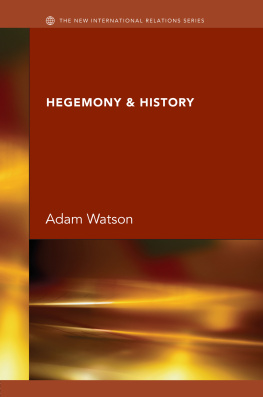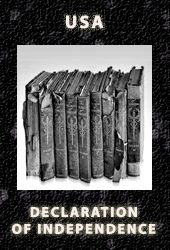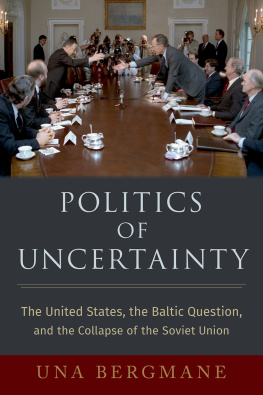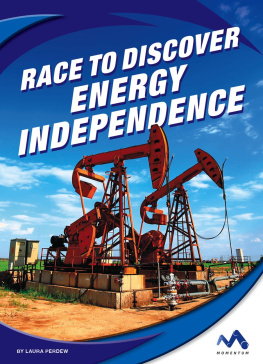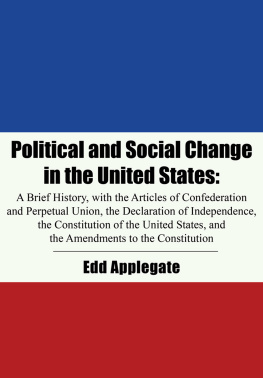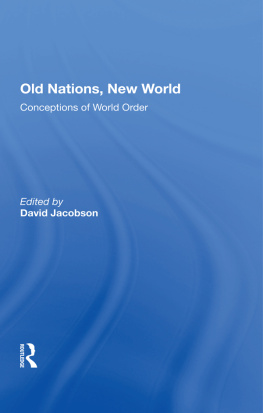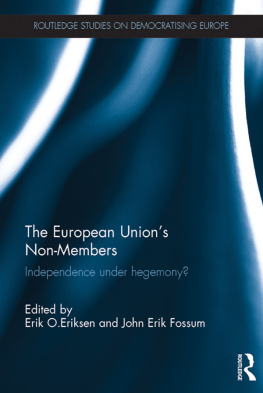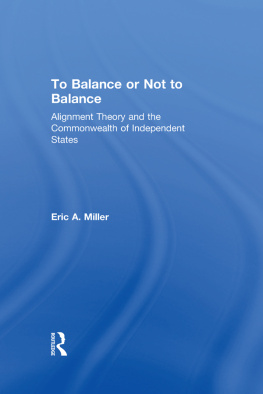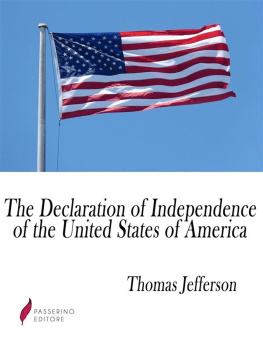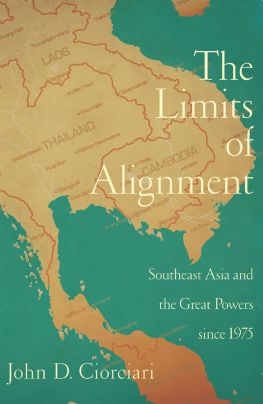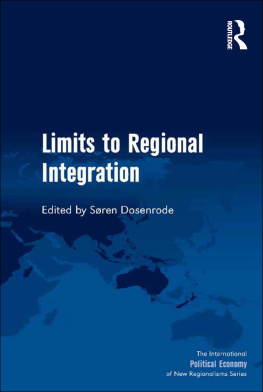The Limits of Independence
Nation states are not as independent as is usually supposed. Their freedom of action is curbed by their inextricable involvement in a states system, and by the rules and institutions which they put in place to manage their relations. Watsons analysis is especially concerned with how the hegemonial authority of the richest and strongest powers also increasingly determines both the external and internal behaviour of nominally independent states.
After setting out the general framework of restraint imposed on states,the book looks in detail at attempts to limit national sovereignties in Europe by creating an overarching supranational authority, from Napoleon to the European Union. Outside Europe ex-colonial states have found their nominal independence limited by their inability to provide strategic security or economic well-being for their peoples. The aid they need subjects them to hegemonial pressures on economics, human rights and the environment.
Watsons analysis draws on his wide personal experience as a diplomat, historian and human rights worker. This book continues his landmark achievement of pushing the study of international systems beyond sovereign states to the realities of hegemony and supranational authority. Its highly readable style will appeal to scholars and the general public alike. A lively glossary will be of specific use to students.
Adam Watson is a former British Ambassador and Assistant Undersecretary. He was also Director General of the International Association for Cultural Freedom and since 1978 he has been Professor of International Relations at the University of Virginia. He is the author of The Evolution of International Society.
The Limits of Independence
Relations between states in the
modern world
Adam Watson
First published 1997
by Routledge
11 New Fetter Lane, London EC4P 4EE
This edition published in the Taylor & Francis e-Library, 2003.
Simultaneously published in the USA and Canada
by Routledge
29 West 35th Street, New York, NY 10001
1997 Adam Watson
All rights reserved. No part of this book may be reprinted or reproduced or utilized in any form or by any electronic, mechanical, or other means, now known or hereafter invented, including photocopying and recording, or in any information storage or retrieval system, without permission in writing from the publishers.
British Library Cataloguing in Publication Data
A catalogue record for this book is available from the British Library
Library of Congress Cataloguing in Publication Data
A catalogue record for this book has been requested
ISBN 0-203-44806-5 Master e-book ISBN
ISBN 0-203-75630-4 (Adobe eReader Format)
ISBN 0-415-15811-7
0-415-16907-0 (pbk)
To Douglas, Polly and Alaric
Acknowledgements
I owe a debt of gratitude to many people whose ideas and suggestions have helped me to write this book. This is particularly true for those on the brief list below, most of whom are quoted in the text.
George Kennan has given me constant encouragement, both by precept and by example, and has helped me to think more clearly about many of the books themes. Barry Buzan expounded the concept of anarchophilia, and with characteristic perceptiveness has suggested a number of valuable improvements and corrections. Marion Dnhoffs writings exemplify the traditional Prussian virtues of personal integrity and religious and racial impartiality in government, which are echoed in this book. A.P.Rana provides an illuminating example of the Indian gift for coherent overview of the complexities of the international scene. Robert Jacksons work and conversation on quasistates has enlightened the whole subject of small states and aid for me. Robert Wade-Gery was the first to explain the limitations of sovereignty to the British Committee for the Theory of International Politics, and in detail to me. Ole Waever showed me how my ideas on hegemony apply to contemporary Europe. Inis Claude clarified my understanding of how different from one another states are. I also wish to thank my publisher, Claire LEnfant, for helping me to put this book into shape, and Heather McCallum for sympathetic and professional editing. Above all I want to thank my wife for her patient insistence on clarity and coherence.
Personal perspective
It is said that when someone reaches the age of eighty he or she is entitled, and perhaps is under a certain obligation, to look back at his or her experience and see what lessons can be drawn from it. In many societies this was the function of older people who had managed to survive and to retain their clarity of mind. In public life the concept of a senate (from the Latin senex, an old man) or council of elders derives from the awareness that the often bitter lessons of experience are one essential ingredient in the mix that makes for good judgement. But the past is not by itself a reliable guide to the future. It is not necessary that the advice of the elders should be followed: only desirable that it should be heard.
Of course in this age of specialization the only lessons worth offering to the public are those drawn from experience in ones field of competence. The views of eminent scientists about politics are worth no more than the views of eminent politicians about science. Some celebrities -famous actresses for examplecan expect their general pontifications to command wide interest; but others do well to limit necessarily narrow area of expertise.
Most of my working life has been concerned with the practice and the theory of relations between states. Anyone born, as I was, at the beginning of the First World War can hardly feel that what are called international affairs have been conducted with great success. There was, and is, what scholars of the British school call an international society of states that conceive themselves as essentially independent; and that society has elaborate rules and institutions designed to manage order and change and lubricate relations between the states. The job was done adequately in the nineteenth century; and fairly adequately too in the half century since the Second World War came to an end. But the period from 1900 to 1945 was catastrophic. Events and public opinion in Europe span altogether out of the control of moderate statesmen. The wholesale decolonization of the last fifty years has had much less dislocating results and has brought considerable benefits; but we cannot feel complacent about it either.
Looking back on those events, and especially those with which I have been professionally involved, I have found myself increasingly pushed to the conclusion that international affairs have been, so to speak, too inter and too national. Have we cherished and idealized independence and sovereign statehood not wisely but too well?
That question is part of a wider set of doubts about the role of the sovereign state. Have Leviathan states (to use Hobbess term) hogged too much power, too much administrative control, at the expense of both supranational and provincial political entities? Have sovereigns more multipolar. One could plot a graph of our non-communist authority, and to accept what is now called the principle of subsidiarity? Externally, have they too often rejected supranational authority, which (as I will explain) I think must by its nature be hegemonial in practice?

